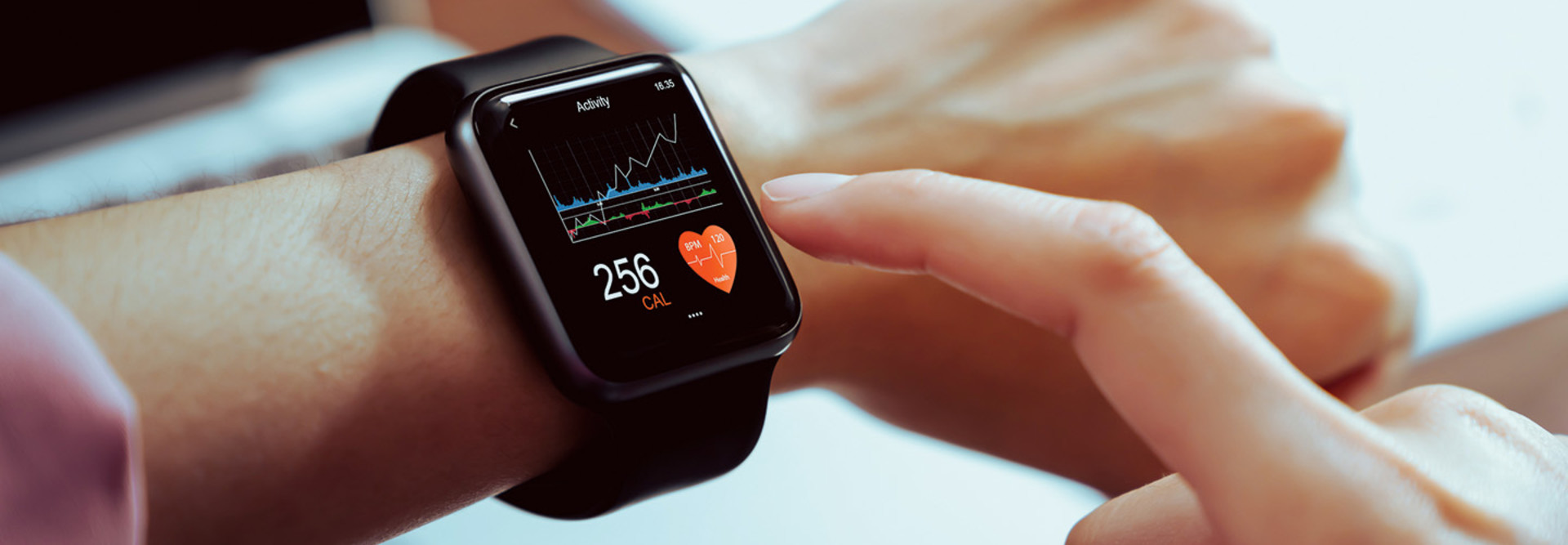Shop At Haya: Your Ultimate Shopping Guide
Discover the best shopping tips, trends, and deals for a smarter buying experience.
Wearables: Your New Personal Trainer on Your Wrist
Revolutionize your fitness journey! Discover how wearables turn your wrist into a personal trainer, guiding you to achieve your goals effortlessly.
How Wearable Technology is Revolutionizing Personal Fitness
Wearable technology is transforming the landscape of personal fitness by providing users with real-time data and insights about their health and activity levels. Devices such as smartwatches, fitness trackers, and heart rate monitors offer a plethora of features, including step counting, calorie tracking, and sleep monitoring. This data empowers individuals to set personalized goals and track their progress, making workouts more effective and efficient. With the integration of mobile applications, users can easily analyze their performance over time, establish routines, and even connect with friends for additional motivation and accountability.
Moreover, the rise of wearable technology has led to significant advancements in fitness coaching and training. Many devices now include built-in coaching programs that offer tailored workouts based on the user's fitness level and objectives. Furthermore, features such as GPS tracking and heart rate monitoring allow for in-depth assessments of exercise intensity and recovery, optimizing training regimens. As a result, athletes and casual fitness enthusiasts alike can enjoy a more dynamic and informed approach to their fitness journey, ultimately revolutionizing how we perceive personal wellness and self-improvement.

10 Key Features to Look for in Your Next Fitness Tracker
When selecting a fitness tracker, accuracy is paramount. Look for devices that offer precise heart rate monitoring and step counting, as these metrics are crucial for evaluating your fitness progress. Additionally, consider a tracker that provides detailed data analysis, including calories burned and distance traveled. Many modern fitness trackers also include GPS functionality, which allows you to map your routes accurately. Customization is another essential feature; a good tracker should allow you to set personal goals and receive tailored suggestions based on your activity levels.
Another factor to consider is battery life. Opt for a fitness tracker that offers a long-lasting battery, so you can enjoy uninterrupted tracking during workouts and throughout daily life. Connectivity options cannot be overlooked either; select a device that easily syncs with your smartphone and supports popular fitness apps. Moreover, a water resistance rating is beneficial if you plan on tracking swimming or working out in wet conditions. Finally, assess the design and comfort; choose a tracker that is lightweight and fits comfortably on your wrist, ensuring it's suitable for all-day wear.
Can Wearables Replace a Personal Trainer?
With the rapid advancement of technology, wearables have become an integral part of fitness regimes. Wearable devices, such as smartwatches and fitness trackers, can monitor various aspects of physical activity, including heart rate, calories burned, and steps taken. Some devices even offer personalized workout plans based on user data. While these features provide valuable insights, the question arises: can wearables replace a personal trainer? Unlike a personal trainer, who offers motivation, support, and tailored guidance, wearables lack the human touch that can help individuals push through mental barriers and stay committed to their fitness goals.
Despite the impressive capabilities of wearable technology, there are limitations to their effectiveness in replacing personal trainers. For instance, a personal trainer can provide real-time feedback on form and techniques to prevent injury, something wearables cannot accomplish comprehensively. Furthermore, personal trainers can adapt workouts on the fly, taking into account a client's mood or physical condition, which is challenging for a device to assess. Therefore, while wearables can enhance performance and track progress, they are unlikely to fully replace the personalized support and relationship that a human personal trainer offers.